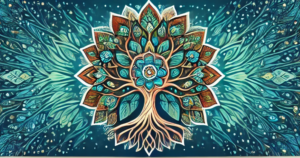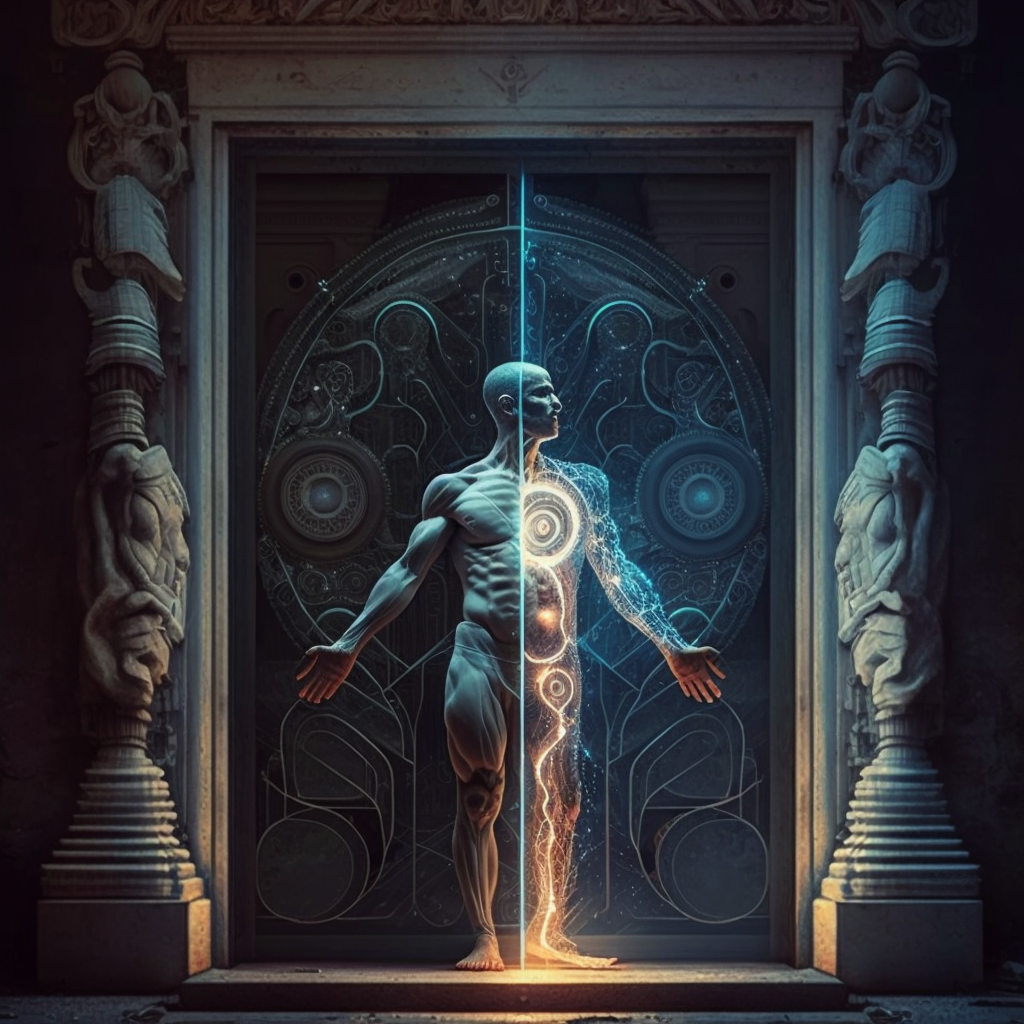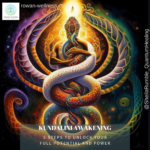AI in a Spiritual Context
Exploring the Intersection of Technology and Spirituality
Introduction
Let’s discuss AI in a spiritual context. The development of artificial intelligence (AI) has elevated the examination of the relationship between technology and faith to new levels. Every aspect of our existence is changing due to AI, and this includes our spirituality, thus the debate over AI is highly controversial, to say the least.
I have a master’s degree in computer science and software engineering, and at one time had the desire to work in artificial intelligence design. That being the case, the sudden and dramatic emergence of AI into the mainstream, such that now nearly every person has to opportunity to directly interact with it, has been intriguing to me. I’ve been amazed to see reactions that range from enthusiasm and excitement to warnings and dire predictions that AI will contribute to our demise.
What’s the truth? This article will examine how artificial intelligence (AI) is influencing spirituality, how it might improve spiritual practices, and what risks this cutting-edge technology presents to our spiritual lives.
“As AI continues to expand its reach, it will undoubtedly have a significant impact on spirituality, both positive and negative.”
– Kara Swisher
The Impact of AI on Spiritual Practices
AI, in a spiritual context, is changing meditation and mindfulness. Users of AI-powered meditation apps report improved concentration and relaxation, which is why these apps are growing in popularity. By taking into account each user’s particular requirements and preferences, these applications use machine learning algorithms to customize meditative experiences for each user. This individualized method of meditation can assist people in developing their spiritual practices and growing in self-awareness.
The study of mystical experiences and altered states of awareness is being done with artificial intelligence. Brain scans of people who are experiencing altered states of awareness, such as during deep meditation or psychedelic events, are being analyzed by researchers using machine learning algorithms. The nature of mystical experiences and their function in spiritual growth may be clarified by the findings of these studies.
AI is starting to play a role in personalized spiritual guidance. Users can get individualized spiritual counseling from chatbots and virtual assistants driven by AI. These virtual spiritual advisors can be accessed at any time and can offer insights and guidance based on a user’s specific needs and questions. There are two big drawbacks to this approach, however. One, the direct human-to-human interactions in supportive and nurturing settings cannot be replicated nor replaced by these virtual counselors. Two, how emotionally and spiritually mature is AI? One might argue that the trajectory of its growth is only as good as the inputs used to “educate” it. What we’re seeing currently are a lot of outputs that promote “woke” ideology, thus a significant concern becomes whether AI, when used in a spiritual context, is, or has been, allowed to mature organically with a broad range of learning inputs, and/or whether its foundational programming has been tampered with to promote distinct ideologies and narratives that are counter-productive to soul growth and expansion of the human consciousness. We’ll discuss these and other concerns later in this article.
“The rise of AI presents us with new opportunities for spiritual growth and exploration, but it also requires us to think critically about the implications of this technology on our individual and collective well-being.”
– Jayshree Pandya
The Potential of AI in a Spiritual Context; Enhancement of Human Spirituality?
AI has the potential to facilitate spiritual development by offering each person individualized advice and insights. Machine learning algorithms can evaluate a person’s spiritual routines and provide personalized growth and development advice. This individualized method can aid people in developing higher states of spiritual awareness and comprehension. In time and with appropriate growth and maturation, AI might one day even assist us in identifying biases and limiting beliefs, thus assisting us in expanding our consciousness to our ultimate potential.
Wearable sensors, biofeedback devices, and other AI-powered gadgets can help us develop greater self-awareness by connecting us to our inner selves. These technologies can monitor our mental and spiritual health by tracking our bodily and emotional states. We can better comprehend ourselves and develop our spiritual practices by using AI-powered tools to track and analyze our internal states.
The development of spiritual groups has also been aided by the advancement of AI technology. Social media and online platforms have made it simpler for people to interact with other people who hold similar views and values. People who are geographically separated but have a shared interest in spirituality can be brought together with the aid of AI technology.
“As we explore the intersection of AI and spirituality, it is important to approach it with awareness and mindfulness.”
– Marianne Williamson
The Challenges of AI in a Spiritual Context; The Ethical Implications
While AI in a spiritual context may have advantages, it also has many serious ethical implications and social ramifications. The possibility that AI could – or whether it should – take the place of human spiritual leaders and mentors is one of the major worries. While AI may be able to offer individualized spiritual counseling, we need to remain very mindful of how the advice generated by AI might be manipulated through limited or censored inputs, algorithms that might introduce bias towards particular ideologies, or just plain immaturity of the AI system itself.
As discussed above, the possibility of bias in AI algorithms is a huge concern. The data that AI algorithms are educated on determines how objective they are. The algorithm will be prejudiced if the data is biased, limited, or manipulated, which could result in suggestions and instructions that could be harmful to the spiritual seeker.
The possible disintegration of human connections presents another difficulty for AI in a spiritual context. AI cannot and will never take the place of the direct human relationships that offer the support, empathy, and nourishment needed for spiritual development. AI can facilitate human connections, but it cannot take the place of the meaningful, close relationships that many people desire in their spiritual lives. Some people worry that relying too much on technology may cause them to lose their compassion and empathy, as well as their comprehension of the complexities of the human experience.
And finally, there’s the issue of anonymity. Significant privacy concerns are raised by AI algorithms that examine a person’s digital footprints to offer individualized spiritual advice. People should be in charge of their personal data and how it is used.
The limitations of AI technology in the metaphysical sphere must be examined and understood. While AI may offer useful tools and information, the development of intuition and inner wisdom that come from one’s own spiritual practice and growth cannot ever be replaced by AI. Our spiritual lives are profoundly personal and individual, and no amount of technology can ever replace the special insights and experiences that result from personal exploration and development.
“The question is not whether AI will affect spirituality, but how we can ensure that it does so in a way that is ethical, responsible, and aligned with our deepest values.”
– Krista Tippett
Conclusion
Personalized spiritual advice, support for meditation and mindfulness, and connecting people with like-minded communities are just a few of the potential advantages of AI in a spiritual context, which is still a relatively new idea. It also highlights important ethical issues, such as the possibility that AI could take the place of human spiritual guides and mentors, bias in AI algorithms, and privacy issues.
I’ve seen a wide range of responses to AI in the spiritual community. Some warn that we’re interfacing with a technology that has the potential to control or manipulate us, now or in the future, or promote ideas and beliefs that are counter to true ascension and spiritual enlightenment. I believe these are valid and important concerns. AI cannot and will not ever be a replacement for personal spiritual development; it is only a potential tool and one that should only be used with deliberation and care. As AI in spirituality develops, it is critical to remain aware of these issues and to make sure that AI is used morally and sensibly. We need to have an understanding of how the learning algorithms behind AI have been developed and what data they may exclude. But perhaps the best way to ensure that AI evolves into a valuable tool and not a weapon against humanity is for conscious humans to continue to interact with it regularly and with discernment, helping to shape its development toward logical and compassionate reasoning skills. As with shadow work, we can’t turn away from it and pretend it’s going to magically disappear. We can’t fight it without creating resistance and depleting our energy. We must stay in the game, remain discerning, and allow our light to influence in ways that carry it forward as a synergistic tool.
References:
- Heidt, M. (2021, February 22). AI’s Role in Spiritual Development. Catholic San Francisco. https://catholic-sf.org/news/ais-role-in-spiritual-development
- Holger, R. (2021, February 1). The Future of Spirituality in the Age of Artificial Intelligence. The Daily Sceptic. https://dailysceptic.org/the-future-of-spirituality-in-the-age-of-artificial-intelligence/
- Loyola, M. (2020, December 24). The Ethics of AI in the Age of Spiritual Machines. Wired. https://www.wired.com/story/the-ethics-of-ai-in-the-age-of-spiritual-machines/
- Swisher, K. (2019, October 14). The Pros and Cons of Artificial Intelligence. The New York Times. https://www.nytimes.com/2019/10/14/opinion/ai-pros-cons.html
- Pandya, J. (2019, January 22). The rise of AI and its impact on spirituality. The Next Web. https://thenextweb.com/contributors/2019/01/22/the-rise-of-ai-and-its-impact-on-spirituality/
- Williamson, M. (2019, April 10). Spirituality and Artificial Intelligence. Marianne Williamson. https://marianne.com/spirituality-and-artificial-intelligence/
- Tippett, K. (2020, July 30). On Being with Krista Tippett. Krista Tippett Public Productions. https://onbeing.org/programs/krista-tippett-mary-oliver-listening-to-the-world/
Schedule a Session With Me
If you’d like to go deeper in a supportive, healing environment, please visit my scheduling page.




